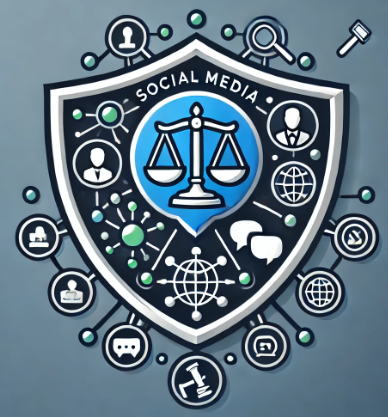Exploring the Complexities of Social Media Regulation: A Comprehensive Guide
Social Media Regulation
Social media has become an integral part of our daily lives, connecting billions of people worldwide. However, with this increased connectivity comes the challenge of regulating content on these platforms. As social media companies grapple with the balance between free speech and harmful content, it is essential to understand the various aspects of social media regulation.
The Fundamental Debate: Free Speech vs. Harmful Content
At the heart of social media regulation lies the fundamental debate between protecting free speech and mitigating the spread of harmful content. While social media platforms provide a space for individuals to express themselves freely, they also have a responsibility to prevent the dissemination of hate speech, misinformation, and other detrimental content.
The Evolution of Social Media and Content Moderation
Content moderation on social media has evolved significantly over the years. As platforms have grown in size and influence, they have had to adapt their moderation practices to keep pace with the ever-changing landscape of online communication. Understanding the history and development of content moderation is crucial to addressing current challenges.
Technical Challenges and Ethical Implications
Moderating content on social media platforms presents numerous technical challenges. Automated systems, while efficient, can struggle to understand context and nuance, leading to the unintentional removal of legitimate content. Moreover, the ethical implications of content moderation decisions cannot be overlooked, as they can have far-reaching consequences for individuals and society as a whole.
Legal and Regulatory Approaches
Governments and regulatory bodies worldwide are grappling with how to address social media regulation. Different countries have taken varied approaches, from self-regulation to strict government oversight. Examining the legal and regulatory landscape is essential to understanding the potential solutions to the challenges posed by social media.
The Impact on Public Discourse and Democracy
Social media has transformed the way we engage in public discourse and participate in democratic processes. However, the spread of misinformation and the creation of echo chambers can have detrimental effects on public opinion and political decision-making. Exploring the impact of social media regulation on public discourse and democracy is crucial to ensuring the health of our digital public sphere.
Navigating the Complexities of Social Media Regulation
To help educators and students navigate the complexities of social media regulation, we have created a comprehensive activities and worksheets bundle. This resource covers the fundamental debates, technical challenges, ethical implications, legal and regulatory approaches, and the impact on public discourse and democracy.
Social Media Regulation – Activities and Worksheets Bundle
By engaging with these materials, students will gain a deeper understanding of the various aspects of social media regulation and develop the critical thinking skills necessary to analyze and address these challenges.
Conclusion
As social media continues to shape our digital landscape, it is essential to understand the complexities of content moderation and its impact on society. By exploring the fundamental debates, technical challenges, ethical implications, legal and regulatory approaches, and the impact on public discourse and democracy, we can work towards creating a safer and more equitable online environment for all.





